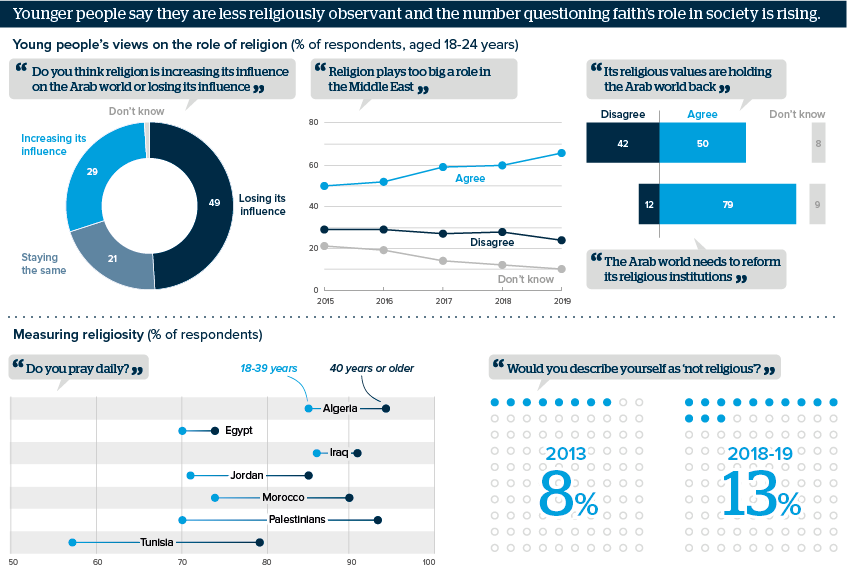Religious shifts may alter Arab politics and society
Attitude surveys in the Middle East indicate a gradual decline in religious observance, mostly driven by young people
Source: Arab Youth Survey; BBC/Arab Barometer; Pew Research Center, The Age Gap in Religion Around the World, June 2018
Outlook
Several recent surveys across the Middle East and North Africa point to a decline in religious observance, albeit from a high starting point. This is largely driven by younger demographics. Not only do younger respondents say religion is less important than older people do, but the proportion of young people questioning religion’s role is growing.
Drivers may include perceived failures of Islamist parties to deliver promised change and experiences with extremism following the 2011 Arab uprisings.
However, in an authoritarian context, respondents may also self-censor when answering on sensitive topics. Political considerations likely weigh on responses, given restrictions on Islamist parties in several countries. Moreover, reforming religious institutions is a narrative propounded by several regional governments.
Impacts
- Religiously-oriented political parties may decline in popularity.
- Government intervention in religious teachings will grow in some areas.
- Individual surveys in an authoritarian context conceal political self-censorship.
